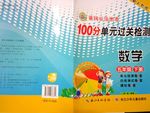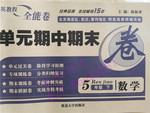题目内容
【题目】
【1】It took them more than ten years ____________(build)it under terrible conditions.
【2】The Great Wall which we can see now __________(rebuild) during the Ming Dynasty in the 16th century.
【3】With the whole family together,we share __________(happy) and great joy.
【4】The work __________(finish) next week.
【5】Where would you like __________(go)?
【答案】
【1】to build
【2】was rebuilt
【3】happiness
【4】will be finished
【5】to go
【解析】本题根据所给的词来完成句子,要注意每个词所在的句子担当的成份。尤其注意谓语还是非谓语,同时还要注意某些词在固定句式中的固定用法。
【1】to build
考查固定搭配。It takes sb. some time to do sth,花费某人多长时间做某事。所以此句中要用动词不定式,所以要填to build。
【2】was rebuilt
考查谓语动词。本句是一个定语从句。The Great Wall主句的主语,是单数。与rebuild是被动关系,故要用was rebuilt 作谓语动词。
【3】happiness
考查名词作宾语。和一家人在一起分享幸福和快乐。
【4】will be finished
考查谓语动词。这项工作下周将完成。一般将来时的被动,故要用will be finished。
【5】to go
考查固定搭配。Would like to do sth.愿意做某事,想要做某事。故要用to go。

 智慧课堂密卷100分单元过关检测系列答案
智慧课堂密卷100分单元过关检测系列答案 单元期中期末卷系列答案
单元期中期末卷系列答案